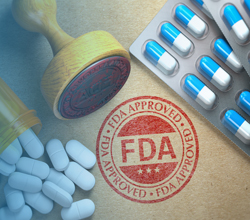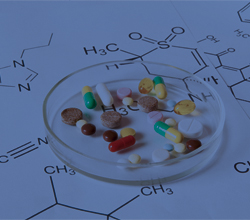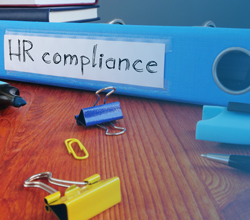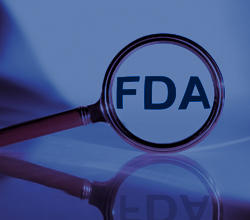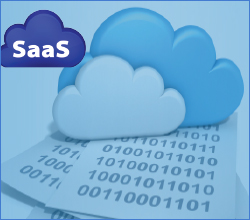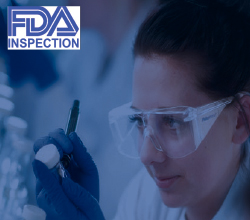
Best Practices on Six Sigma and CAPA Convergence
 Jose Mora
Jose Mora
 60 Min
60 Min
Product Id: 700168
This Quality compliance training will helps in methodologies of Six Sigma and CAPA converging and how to recognize which methodology is best to use for a problem.

Getting to Know FDA Audit Practices and the 10 Most Common Cited GMP Deficiencies
 Kenneth Christie
Kenneth Christie

Product Id: 703635
This training program will provide attendees with a better understanding of how the FDA conducts their audits and the areas of most focus. In addition, it provides a summary of common GMP deficiencies given to drug manufacturers, to use to evaluate one’s own practices. Finally, when given a regulatory audit finding, this webinar will review the top five items to remember when submitting your responses to them to avoid further questions.

Current Regulatory Requirements for Sterile Products
 Kenneth Christie
Kenneth Christie

Product Id: 703672
This webinar will highlight and summarize the main components relating to current validation requirements for sterile products and include the following; review of the current regulations and guidance documents, the typical expectations when aseptic processing is involved, the expectations for protocols used to document the qualification of associated equipment, utilities and processes, and recently cited regulatory deficiencies.

The Regulatory Expectations for Environmental Monitoring Programs
 Kenneth Christie
Kenneth Christie

Product Id: 703648
Understand the importance of an effective environmental monitoring (EM) program and its place in your organization. This course will provide insights on regulatory requirements governing EM programs, contamination control practices, and common deficiencies cited by regulatory auditors when auditing EM programs.

Challenges of an Effective Change Control Program
 Kenneth Christie
Kenneth Christie

Product Id: 704638
This training program will provide attendees with a better understanding of current Quality System Regulations (QSR) require companies to maintain qualified equipment, utilities and facilities in a state of control. When changes are made to these items, the change must be documented, explained as to what will be done and the items that may be impacted. This webinar will also highlight what is expected, what to include in procedures and address the challenges faced by industry in trying to establish an effective and manageable program.

Basic Requirements for IQ, OQ and PQ Protocols
 Kenneth Christie
Kenneth Christie

Product Id: 704591
This training program will provide an outline of the typical protocols used for documentation of qualification activities, the type of information normally included in each and the common deficiencies cited when audited. It will highlight the importance of establishing specifications for all test challenges, proper documentation with regards to results obtained, how to address deviations encountered and how best to summarize results obtained.

4-Hr Virtual Training: Ten Steps to Data Integrity in Pharmaceutical and Biotech Labs
 Nanda Subbarao
Nanda Subbarao

Product Id: 704730
This training program will provide an introduction to regulatory expectations for data integrity, discuss generation, review and archiving of data, enumerate evolving requirements for eData, and expound on support systems for data integrity.

10-Step Risk Based Computer System Validation for SaaS/Cloud/Local Hosting
 David Nettleton
David Nettleton

Product Id: 701583
Understand the 10-step risk based approach to validation, explore methods to decrease resource requirements, and learn how to make documentation more manageable and understandable.

Key Factors to Develop an Effective CAPA System
 Kim Huynh-Ba
Kim Huynh-Ba

Product Id: 703320
This training will focus on the regulatory requirements for a Corrective and Preventive Actions (CAPA) system. Attendees will learn how to develop an effective CAPA system.

Managing your GMP Quality Control (QC) Labs in Compliance with FDA Regulations
 Kim Huynh-Ba
Kim Huynh-Ba

Product Id: 705081
This webinar will discuss the common deficiencies in relation to compliance and validation issues that typically found with pharmaceutical Quality Control labs.

The New Part 11 Inspections: Requirements for Validation and SaaS/Cloud Applications
 David Nettleton
David Nettleton

Product Id: 704734
This training program will identify data and systems subject to Part 11 and Annex 11. It will also decode what the regulations mean and illustrate the current computer system industry standards for security, data transfer, and audit trails.

Studies to Support Temperature Excursions and Shipping of Pharmaceutical Products
 Kim Huynh-Ba
Kim Huynh-Ba

Product Id: 704770
Upon completion of this training program, attendees will learn key factors that would affect the shipping and distribution of drug products. One must understand the product stability profile, typical environmental conditions for storage and anticipating environmental extremes for distribution. These data will be necessary to design shipping conditions in order to maintain quality of the drug product through expiry.

Annual GLP Refresher Course - 4 Hour Virtual Training
 Nanda Subbarao
Nanda Subbarao

Product Id: 704893
An Annual GLP training is a requirement for all personnel involved in Good Laboratory Practices (GLP) studies. The webinar course serves both as an initial training for new employees, new to GLP concepts will serving as a refresher course for experienced senior employees. The webinar provides an overview of the GLP to remind the attendees of the regulatory requirements for organizations in which bioanalytical testing is conducted.

21 CFR Part 11 and Annex 11 Compliance - Specifics Needed to Eliminate 483s
 David Nettleton
David Nettleton

Product Id: 704533
This 21 CFR Part 11 compliance training will guide you through the requirements of Part 11 and will also explain its 3 primary areas: SOPs, product features and validation (10 step risk based approach).

Current Regulatory Requirements for Aseptically Produced Products
 Kenneth Christie
Kenneth Christie

Product Id: 704791
The manufacture of sterile products and the risk they represent to the public is always on the fore front of inspectors during regulatory audits. As a result, the manufacture of sterile products require a high degree of control of incoming materials, the manufacturing process and the control of personnel to name a few. A weakness in any of these items can jeopardize the sterility assurance of the final product. This training program will highlight and summarize the following main components relating to current validation requirements for sterile products and include the following; review of the current regulations and guidance documents, the typical expectations when aseptic processing is involved, the expectations for protocols used to document the qualification of associated equipment, utilities and processes, and recently cited regulatory deficiencies.

